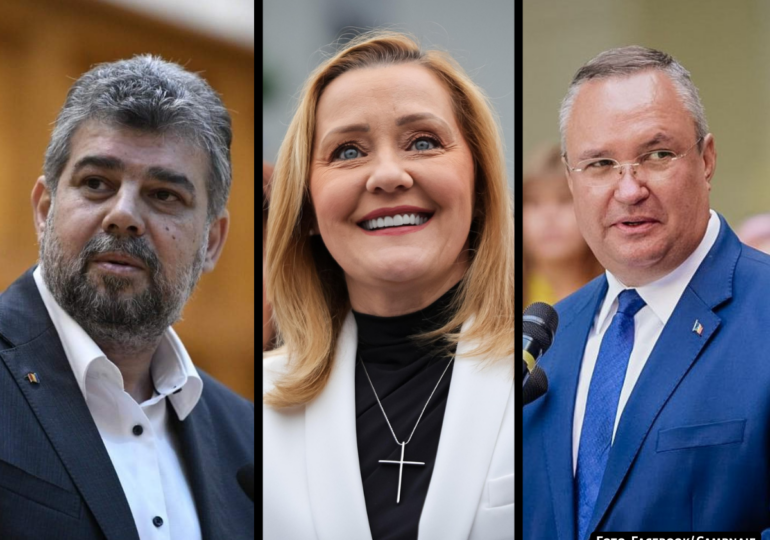Nicolae Ciucă, in his unmistakable, hard-to-follow and hard-to-understand style, announced that there is no longer a political alliance between PNL and PSD, but the liberals remain in the Government to avoid a crisis six weeks before the elections.
The removal of Diana Șoșoacă, an extremist and anti-Semitic politician, from the presidential race through a maneuver that is at least unconstitutional, orchestrated by the Social Democrats, caught the liberals off guard, according to sources within the party. Even though they were aware of such a possibility, they thought that they did not have the courage. But they did.
„Blocking Diana Șoșoacă’s candidacy is a case of exercising sovereignty by a group. Can I prove that? I do not have the tools. However, I have some information and reasonable suspicions from the backstage of the political puppet show that PSD, the same PSD, always plays with the voters, without revealing its desire for absolute power,” announced Rareș Bogdan, Member of the European Parliament and First Vice President of PNL.
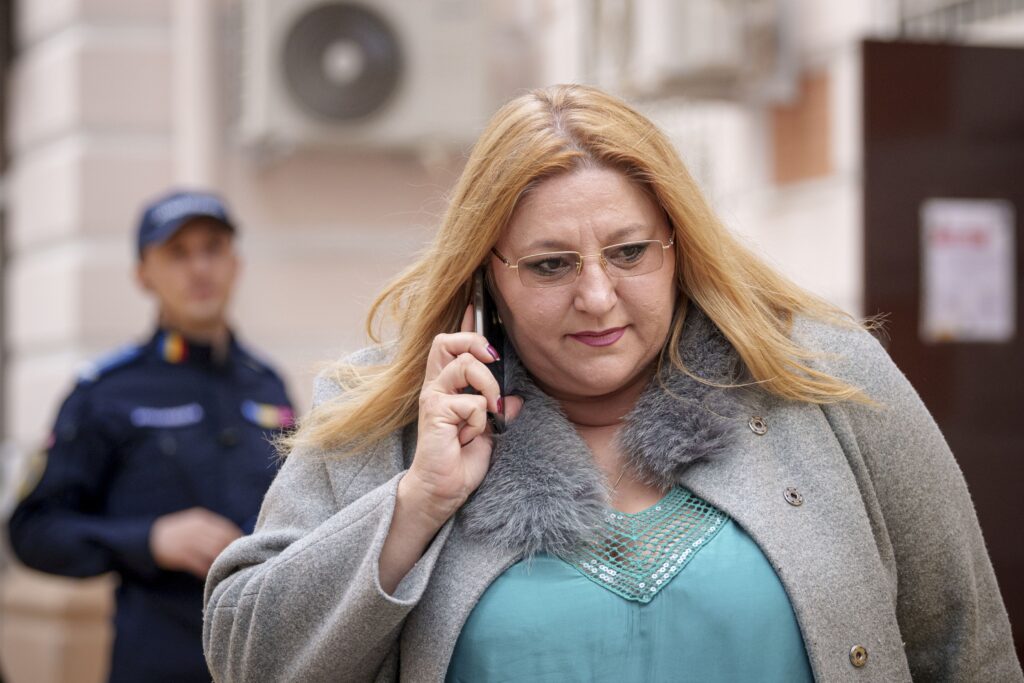
It is quite clear that by resorting to such a maneuver, PSD strategists calculated that without Diana Șoșoacă in the race, George Simion’s chances of reaching the second round alongside Marcel Ciolacu would increase.
However, many times, such calculations are shattered by reality because after such a brutal move, the entire political landscape is thrown into disarray, and when it reassembles, it may look completely different from what those who triggered the move expected.
George Simion and His Demons
"If I were to assume, based on the attachment of this electorate to Diana Șoșoacă and the values she holds, the majority of this electorate will expect a line proposed by Diana Șoșoacă. A small part will automatically migrate to Elena Lasconi, and another part to the other sovereignist candidates," explained sociologist Vladimir Ionaș in a Facebook post.
"As I doubt that Diana Șoșoacă will urge her electorate to vote for Simion, I believe that the main beneficiary will be Elena Lasconi, even with Diana Șoșoacă's support," he added.
And to prevent George Simion from taking flight, shortly after the "sovereignist" was blocked, Claudiu Târziu, Member of the European Parliament and the second man in AUR, published an open letter criticizing the party leader and presidential candidate.
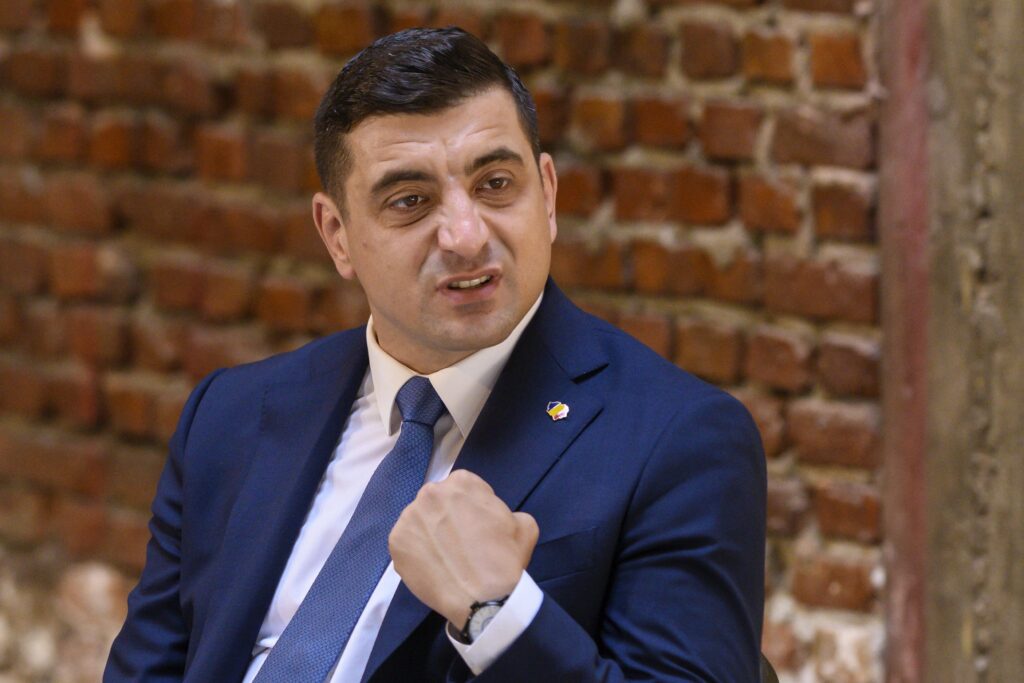
"I warned in advance about the wrong approach to the campaign, but without the desired effect. For idealists and fanatics, we must say very clearly: the figures obtained in the local and European elections are a disgrace to our potential and especially to the extraordinary political moment that we missed spectacularly," wrote Claudiu Târziu, AUR founder, alongside George Simion.
"I did not have the power or the decency to analyze this failure at the party level to draw the appropriate lessons. An attempt of mine to discuss the subject at the National Council Bureau resulted in a triumphalist attitude, unjustified by anything, conveyed to the majority of BNC members by the party's president. And we quickly moved on to something else," Târziu added in his public message.
Thus, George Simion has to fight against more demons than he imagined to reach the second round - with accusations that he is a Russian envoy in Romania, with Diana Șoșoacă's attacks, and with dissatisfied political partners.
Lasconi Fights on Two Fronts
There is a possibility that the AUR leader has passed that magical moment when around 20% of the electorate saw him as a savior of the nation, his image as an alpha politician beginning to fade.
In all this chaos of the presidential elections, there is, however, a certainty: Marcel Ciolacu has the second chance in any presidential final, except the one with George Simion, a conclusion reached by most sociologists who have analyzed the opinion polls so far.
Even though Elena Lasconi seems to be favored to attract a number of votes from the nationalist area, it is hard to assume at this point that she has already secured a spot in the presidential final.
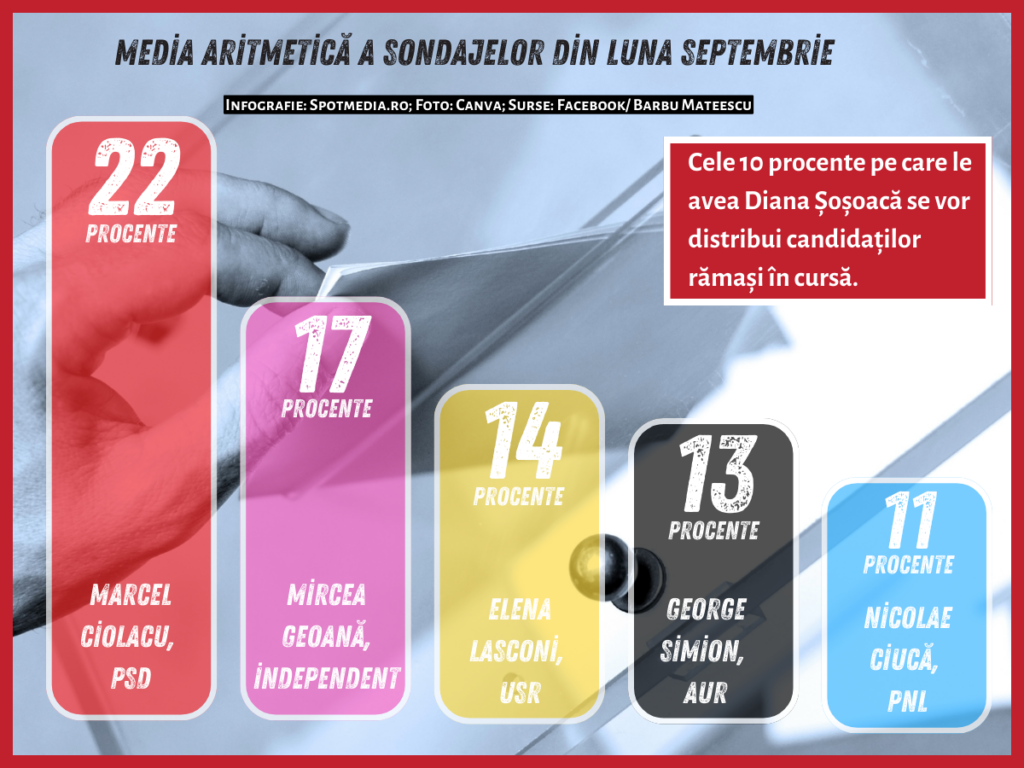
Her political performance so far has not managed to create that wave of sympathy and support that would differentiate her from other candidates, to become the true political solution to the problems and dissatisfactions of the voters caused by the PSD-PNL coalition.
A fight on two fronts, one against Marcel Ciolacu and the other against Nicolae Ciucă, causes her political message to dilute, and people fail to clearly see who the enemy is, whom they defeat when supporting Elena Lasconi.
Ambiguity in statements, schemes, and juggling with many issues are not helpful in such a fragmented electoral campaign with candidates who are less profiled in the public eye.
Often, focusing on a single opponent, the main competitor, can be useful because it attracts attention, creates a clearer competition, one-on-one, and the public understands the messages and stakes of the political confrontation more easily.
The Ciucă Issue
Additionally, representatives of the PNL also have a tough mission. Pushing Nicolae Ciucă into the second round seems to be an exclusive task of the party's activists.
The liberal candidate seems lost in the sea of electoral events, decisions, and solutions he must find.
In any situation, it seems that he is unsuitable and unadjusted to his role. He has not found his rhythm and cannot communicate with the voters.
In such an unfavorable situation, PNL strategists rely on the party's mayors, the political network in the territory, and the local mobilization of the electorate, hoping to compensate for Nicolae Ciucă's inadequacy through "grassroots" party work.
Independents Have a Tough Life in Romania
For a long time, Mircea Geoană was the best-ranked candidate in the voters' preferences.
But as the parties' engines intensify, as campaign funds make their presence felt in the political advertising market, and the messages of the parliamentary formations intensify, Mircea Geoană's aura fades, a former NATO Deputy Secretary-General but a political leader viewed with suspicion in Romania due to his controversial past.
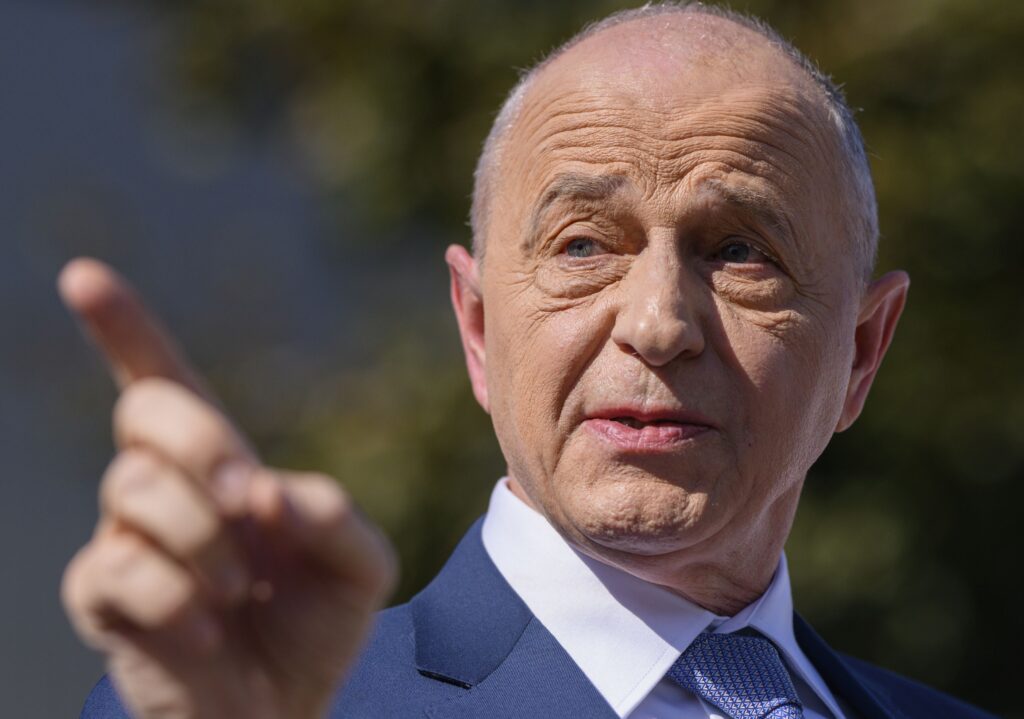
In an interview with journalist Tudor Mușat for the Piața Victoriei show on Europa FM, Mircea Geoană complained that as an independent candidate, he cannot control the electoral process and fears that his votes will be annulled in the polling stations following backdoor agreements between representatives of major parliamentary parties.
Geoană also says that he cannot compete with the other candidates in terms of campaign financing, being disadvantaged by the large sums of public money allocated by law to political formations.
Putting together the calculations made by sociologists, the statements, internal confrontations within parties, and the strength of the political groups involved in the campaign, it appears that at this moment, the favorites for the presidential final are Ciolacu, Lasconi, and Ciucă.
In the next six weeks, until the elections, many things can still happen, and hierarchies and even candidates can change as seen in recent days. Let's expect new surprises.

